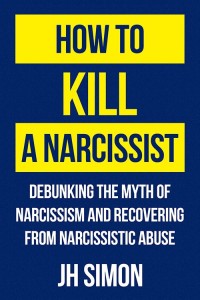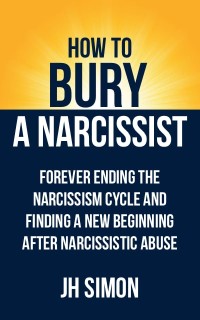Above all, a narcissistic relationship is a world of illusory potential. The narcissist, who lives in a dissociated state, is adept at awakening the target’s magical thinking.
From the get-go, the narcissist communicates to their target that they will be going on a spectacular adventure. Maybe travel the world. Achieve the perfect love, or create the perfect family. Be protected or taken care of forever. Find riches and obtain immense status, or pursue a mission which will change the world. The narcissist and their target will transcend reality, and create something the world has never seen.
The narcissist’s realm is abundant. It promises infinite money, sex, power, status, fame, wonder, belonging or love. It is divorced from the ‘limits’ of reality, able to accommodate any vision.
The narcissist’s realm is also dreamlike and mobile, capable of being transported to another place at any time. Washing away reality and fuelling this realm is limerence, where someone becomes infatuated and obsessed with another person, feeling their heart bursting with joy and amazement at the mere thought of them.
Limerence is characterised by the following:
- Intrusive thoughts: The person is on your mind when you wake, and as you fall asleep. You think about them constantly throughout the day, whether you like it or not, and feel an irresistible need to be with them when they are not around.
- Dramatic change in priorities: You put aside your hobbies, your friends, even your long-term plans in order to align your life with this person.
- Emotional dependence: You do everything you can to keep that person’s approval, feeling incredibly anxious about ‘doing something wrong’ which might upset them. You read into every communication, decision, boundary or facial expression, terrified that this ‘perfect’ relationship might suddenly fall apart.
In a romantic relationship, limerence is often mistaken for love, as we believe we have finally found ‘the one.’ What we fail to realise, however, is that limerence is a powerful holdover from childhood; an immature form of love based on splitting.
When fused with trauma, limerence carries into adulthood, where we split people into the divine being and ignore their flaws. The core difference between love and limerence is that love comes from abundance, whereas limerence comes from lack. That is, when we meet someone who seems to possess traits that we ourselves lack, limerence emerges to compel us to merge with them. This can be in romance, friendship, business or in our personal development. In all such cases, we feel limerence because we believe that person will somehow make us whole, and we do everything in our power to maintain this feeling.
When a narcissist sees their target in this state, they grow bolder, knowing that they have the target exactly where they want them. The narcissist then goes about fuelling the target’s limerence, carefully playing into the role of perfect lover, guru, saviour or whatever role the target casts them into.
Swept up by fantasy, the target enters a trance-like state where boundaries and scepticism are washed away. There are no rules to bother with in this realm, and above all, no outsiders to deal with. The narcissist’s fantasy is safe, contained and exciting. It is timeless and without worry, and will remain that way forever — or so the target thinks.
Grieving the fantasy
The narcissist sold us a fantasy, and we lapped it up because somewhere deep down we wanted it. We craved it. The perfect, sexy partner, and by extension, the perfect, happy home. We especially pined for this reality if we were deprived of goodness in our lives.
Coming from a dysfunctional home makes a person want a perfect, happy home as compensation. Having an emotionally-absent parent makes the idea of an attuned, loving partner seem irresistible.
We forget that in reality, all people are wounded and imperfect, and forming and maintaining relationships is hard work. Each person has unique desires, beliefs and values which will clash with ours. All relationships have phases of tension and pain, followed by routine and boredom. It is not all rainbows. How quick we were to forget this while pulled away by the fantasy.
When the narcissist arrived, we saw the beginning of a perfect union, which we hoped would lead to a happy future. The narcissist sold us this because we too would tolerate only perfection.
The narcissist sees themselves as perfect, and because they are so self-centred, sees their relationships as an extension of this perfection. They never accept that they are limited or flawed, so as reality eventually bites and imperfections in the relationship arise, they lash out. You did this wrong. You will always be a failure. The target feels like they are always striving for a higher bar, which keeps rising as they become increasingly more exhausted. And yet we put up with this.
For the traumatised soul, fantasy is the ultimate medicine. By striving for the perfect relationship, we deny the pain of our past. Most importantly, we reject the potential flaws in our present. Normal people who show imperfection are unsettling to us, because their imperfections show that they could let us down or leave us. They connect us with our shame, and our shame has proven to be painful and irredeemable.
What remains when the fantasy dies? Life can feel bleak when it is realistic and ‘normal.’ By denying this, we were harbouring hidden grandiosity. Normal would never fly for us.
Reality is pain. To accept this is to see that the world is not what we had hoped. Coming into reality reveals our trauma. Our pain. Our tragedy. It exposes our shortcomings and broken dreams, our hurt and our longing. Our broken past. What could have been, yet never eventuated. We needed an escape.
Enter the narcissist.















